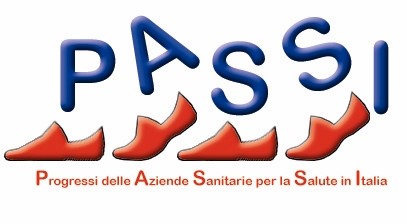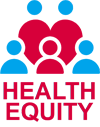PASSI

Project Title: Progressi delle Aziende Sanitarie per la Salute in Italia (Passi) – The Italian behavioural risk factor surveillance system
Duration of the project: 2008 – current
Main Topic
Recognised by the 3rd March 2017 DPCM on “Identification of surveillance systems and registries, PASSI is an Italian public health surveillance system which collects information continuously on lifestyles and behavioural risk factors of the population aged 18-69 years living in Italy, with specific concern to the onset of chronic non-communicable diseases and compliance with disease prevention programs.
Since 2013, PASSI has also become a strategic tool for the assessment of prevention and health promotion policies at national and regional levels. It is in fact a valuable source for monitoring the progress in achieving health goals defined by the National and Regional Prevention Plans 2014-2019.
Furthermore, the complex indicator on lifestyles “Proportion of individuals behaving unhealthily” has been included in the new healthcare basket benefits (so called LEA) since 2014 as experimental and officially considered as per evaluation in the following years.
Additionally, “Surveillance of chronic diseases’ risk factors and lifestyles in the population” is included in the new LEA for the area of collective prevention and public health (DPCM on the provision of new LEA).
Objective
Several topics are investigated in PASSI: they range from health-related behaviours to healthcare services use and risk perception.
Concerning lifestyles, PASSI gathers information on tobacco smoking, physical activity, weight status, alcohol drinking habits, fruit and vegetable consumption, use of salt, cardiovascular risk. In terms of disease prevention, interviewees are asked both about their compliance with the three main cancer screenings (cervical, breast, colorectal) and on seasonal influenza and rubella vaccination uptake, as well as the road safety measures or home injuries.
Data regarding other health-related issues are about pregnancy and breastfeeding, state of physical and psychological well-being, some aspects indicating the quality of life; advice and counselling provided by general practitioners or other healthcare professionals.
To identify health inequalities, all indicators indicated above are analysed by socio-demographic variables: gender, age, educational qualifications, economic conditions, marital status, family composition, nationality, professional status and position, sector and job, municipality of residence.
Type of study
The population under study are people aged 18 and 69 years enrolled in the lists of Local Health Units (LHU) where, monthly, a representative sample is extracted and stratified proportionally by sex and age groups (18-34, 35-49, 50-69 years).
Specifically trained LHU professionals interview people sampled telephonically by administering a standardized questionnaire.
An annual dataset of nearby 35,000 records is planned to be achieved nationwide.
All the Italian Regions and Autonomous Provinces have been participating in the survey since PASSI started. Yearly, 90% of LHUs complete the survey that corresponds with more than 90% of the population living in Italy.
About 90% of the LHUs overall participate in PASSI by a representative sample.
WP/Activity Summary
Data from the PASSI surveillance system allow the overtime study and monitoring of health inequalities as per several aspects: for instance, in terms of exposure to health-related risk factors or access to prevention services and conversely to what extent some public health interventions moderate their effects.
Some examples:
- Health status: Poor health (perceived), depressive symptoms, chronic diseases, diabetes are more frequent among socially disadvantaged people, due to difficult economic conditions and low level of education.
- Lifestyles: Smoking, sedentary lifestyle and overweight or obesity are more frequent among socially disadvantaged people, due to difficult economic conditions and low educational level.
- Cancer screening: people who are socially disadvantaged because of their low education profile economic difficulties or foreign nationality are less likely to undergo early detection tests for breast, cervical and colorectal cancers, which the NHS offers within organized screening programs.
Where organized screening programs are active, that implies from an invitation by the LHU to free care processes, disadvantage in participation in the screening test among socio-economically deprived people is lower in comparison to an individual use of the screening test. - Rubella vaccination: significant differences in rubella immunization rates between Italians and foreigners (respectively 60% and 36%). Rates are even lower among women recently immigrated (less than 5 years old: 30%) and in those coming from countries with high migratory pressure (Sub-Saharan Africa and Asia: 27%). Rather than differences in socio-demographic characteristics or health-related risk factors, these differences are attributable to other cultural or information barriers which play a key role in making these population groups particularly vulnerable per the access to vaccination against rubella.
- Advice from GPs for proper lifestyles: Foreign citizens report to have been advised on healthy lifestyles by a doctor or another health care professional less frequently than Italians have. It is actually observed in smokers as per the advice to quit smoking, in those who are overweight to put on diet, or in sedentary people concerning the suggestion to be more physically active.
Even if living in Italy since longer time increases the likelihood of being advised on healthy lifestyles, however it does not assimilate percentage to the prevalence referred by Italians.
These findings show how doctors, and more in general healthcare workers, meet difficulties in giving advice and getting in relation with patients whom they perceive as different from their own cultural environment.
Responsible of the project: Maria Masocco (maria.masocco@iss.it)
Responsabile of the WP/Activity on inequalities: Maria Masocco (maria.masocco@iss.it), Valentina Minardi (valentina.minardi@iss.it)
Department/Center: CNAPPS
Project website: https://www.epicentro.iss.it/passi/en/surveillance_system
